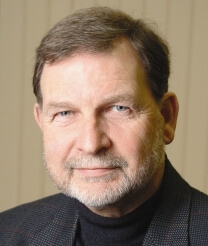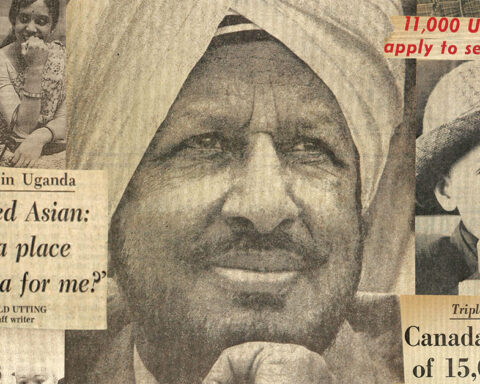It’s been a difficult start to 2015. From the attacks in Paris, the rapid fall in oil prices to the sudden closure of Target and loss of 17,000 jobs, it’s no wonder that many Canadians may feel insecure as they look toward what the rest of the year may bring. What seems predictable is that we’re entering a time of unpredictability.
Now is the time that many will look to our politicians for leadership and solutions. As we approach a federal election scheduled for October 2015, we’re looking for all levels of government to engage with each other. And we’re looking for them to work with and for the people they’ve sworn to represent.
We’ve learned a lot about political “wedges” in recent years, and as we head into the next federal election we should think carefully about their impact on Canada.
Sadly, if the past few years have been any indication, we’re headed in the opposite direction. Instead of working together, the order of the day seems to be working against one another and focusing on issues that divide, instead of unite. The current trend seems to be a focus on wedge issues. Wedge issues are usually those about which a small group feels strongly enough to cause them to cast their vote with a party, which promotes their view.
Impact on Canada
Because in Canada a political party can form a government even by getting fewer than 40 per cent of the votes, it can make good sense for a campaign strategy to focus on such groups. These voters have such strong feelings about their issue that they are considered more likely to get out and cast their ballot. If properly cultivated, the accumulated wedges can amount to a “base”, a reliable block of voters for the party.
We’ve learned a lot about political “wedges” in recent years, and as we head into the next federal election we should think carefully about their impact on Canada.
The parsing of the electorate by issue, interest, opinion, or geography allows a campaign to appeal directly to a small group. An ever-increasing ability to accumulate and disaggregate data has resulted in the ability to fine tune strategies with a precision unknown in the past.
While the parsing of the electorate has proven useful, even indispensable, in running successful campaigns, it has proven to be a disaster for the people being governed. Because the wedge has proven so effective in campaigns, some governments have found it irresistible to keep it up between elections, to keep dividing the electorate in order to maintain their base.
As we’ve seen over the last few years, the security of a fortified base, and the effectiveness of the wedge, can lead to an unhealthy focus which affects how a government constructs its social, environment or foreign policy.
Governing for all
But the idea of democracy is to govern for all the people, and particularly to protect the rights of minorities. What separates democracy from autocracy is the commitment to govern for all, and to avoid creating a tyranny of the ones who won the election.
An elected government should be for everyone including the vulnerable (youth, seniors, people living with disabilities and the down-on-their-luck); future generations who could be harmed by the actions of the present, say in the environment or public debt; and even those who opposed them and voted against them.
As we’ve seen over the last few years, the security of a fortified base, and the effectiveness of the wedge, can lead to an unhealthy focus which affects how a government constructs its social, environment or foreign policy. A constant appeal to only a portion of the electorate can often lead to a government focused on the short term, or on narrow interests.
This erodes people’s trust in government, and the credibility of our leaders. It also invites scorn abroad, as people see Canada take positions in the world based solely on domestic politicking. The lower trust gets and credibility sinks, the less likely people are to vote, and the fewer votes outside “the base” a party needs to win an election. It is a downward spiral. The wedge wins. Our democracy suffers.
It is said that intelligence can incline towards cleverness or wisdom. A reliance on wedge politics may be clever, but it is certainly unwise.
Originally published as a Maytree Opinion. Reposted with permission from Maytree.


Alan Broadbent is the Chairman and Founder of Maytree, and Chairman CEO of Avana CapitalCorporation. Elizabeth McIsaac is the President of Maytree.




